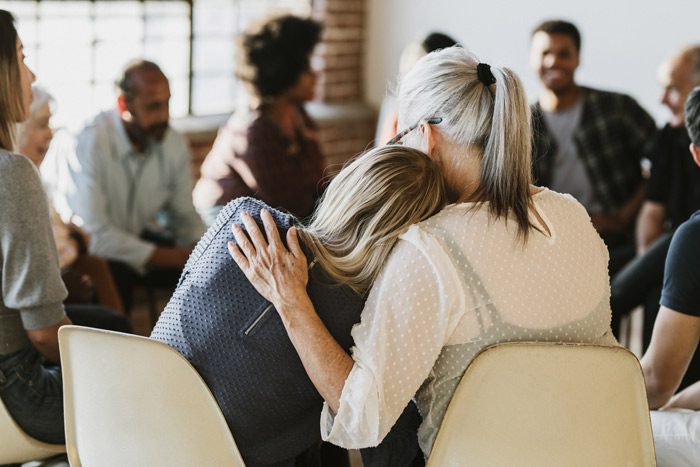Shared Experiences: Making a Connection
Have you ever noticed the ways in which a shared experience can create strong bonds and a sense of mutual support over a short period of time? Or to put it a bit more briefly: the ways in which intense group experiences can lead to an intense sense of connection?
Maybe you were in your high school marching band and experienced the camaraderie that comes from working together toward a common goal. Maybe you formed a lasting group of friends at camp as a kid or at a retreat as an adult. Maybe you and a group of your coworkers bonded over a seemingly impossible project that you successfully pulled together to wow the boss or the client.
In each of those cases (and others like them), you may have felt some trepidation at the beginning. Will you ever learn to march in step and avoid crashing into the tuba players? Will everyone at camp make fun of you (adults at retreats might worry about this, too!)? Will you actually make useful contributions to the impossible project under unrelenting deadline pressure?
Learning & Growing With Others
But in the end, these kinds of experiences tend to be good for us. We develop new skills, we build strong relationships, and we learn how to be helpful to—and accept help from—others.
Those experiences mirror the experience you may have when you start group therapy. At first, you may be quite apprehensive—especially if you are introverted or simply adverse to sharing personal stories with people you do not know. But quite quickly, group therapy becomes a setting in which everyone benefits from the shared experiences and stories of everyone else in the group.
Let’s take a closer look at group therapy.
Group Therapy Can Be Helpful in Many Circumstances
There are a number of different disorders for which group therapy has been shown to be an effective part of a treatment plan. They include:
- Anxiety and panic disorders
- Various types of depression
- Trauma-induced disorders including post-traumatic stress disorder
- Obsessive-compulsive disorder
- Various eating disorders
- Substance use disorders
Group therapy seems to be effective for many of the same reasons that any shared experience can be meaningful. According to the American Psychological Association, a primary benefit of group therapy is the creation of a “common identity and sense of shared purpose.”
That is to say that members of a group can support one another, make progress together, and share a sense of community that can make each individual feel less alone in their struggles. The members of a group also tend to hold one another accountable, and that sense of accountability to a group can be a powerful motivator that supports the pursuit of well-being. And a group can benefit from both the commonality of their experience (every member of the group is dealing with anxiety, for example) and the diversity of their experience (every member of the group has had different experiences that can inform and help others group members).
Under the guidance of a professional therapist, a therapy group can make significant progress toward wellness together.
The Shape of a Group Therapy Session
Group therapy meetings may be free-flowing discussions or organized around a specific topic. Over the course of group therapy, you would likely experience both approaches. Everyone in the group should expect to contribute to the conversation to one degree or another with the shared understanding that anything said in the group setting is to be kept strictly confidential. This shared commitment to confidentiality is a key part of group therapy because it encourages more honest and more frequent participation by everyone in the group.
Nevertheless, it is certainly possible that there are things you will not feel comfortable sharing with the group. Your privacy should, of course, be respected. A conversation with the therapist who facilitates your sessions can help establish your personal boundaries so that you feel more comfortable in group meetings.
What you get out of the group therapy experience is directly related to how much you put in. Ideally, the members of your group can help you—and you can help them as well. A spirit of openness and honesty can be good for everyone involved.
Let Us Help You Determine if Group Therapy Is Right for You
At Johnstown Heights Behavioral Health, we know that treatment for mental health (and substance use) disorders is hardly a one-size-fits-all affair. That is why we are committed to listening carefully to each individual we serve. This is about respect, but it is also the best way to develop a personalized treatment plan designed to improve and support your overall well-being.
If we determine that group therapy could be a helpful part of your treatment, we will answer your questions and address your concerns so that you are as comfortable as possible in the group setting. We understand that group therapy can seem daunting or scary or uncomfortable at first. But we also know that groups benefit from mutual respect, support, and empathy. We are ready and able to put group therapy to work for you.







